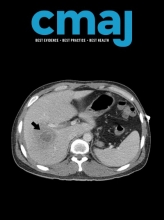Dr. Pamela Wible started counting after two of the men she had dated in medical school died by suicide. “I needed to know more about why this is happening, and when I asked other physicians, most of them knew others who died by suicide or they’ve been suicidal themselves.”
Five years on, Wible has documented more than 700 physician suicides. Common threads bind these tragedies, she says. Most were men and, by all appearances, they seemed happy and well-adjusted. They had personal problems like anyone else — mental illness and substance use issues, divorce, legal troubles, infidelity, disabilities, and the deaths of loved ones. Their stories also expose the heavy toll of a toxic medical culture and broken health systems, Wible says. “The culture we’ve been groomed in basically glorifies self-neglect and the lip service given to self-care as a solution sugar coats over this.”
On her blog, Wible describes a litany of stressors shared by doctors and medical students who died by suicide. These include severe sanctions for mistakes, academic distress and failure to match to residency, bullying, sleep deprivation, assembly-line medicine, trauma on the job, and a culture of secrecy and shame around suicide that makes seeking help a professional minefield. “We’ve been collectively wounded by our profession, so I think the solution needs to be collective,” she says.

Broken health systems are breaking physicians, warns a doctor who has documented more than 700 suicides in the profession over the past five years.
Image courtesy of humonia/iStock
It’s estimated that about 400 doctors die by suicide in the United States each year. This likely underestimates the problem, since many deaths may be mis-labelled as accidents, Wible explains. Medical schools and hospitals don’t count or investigate how often or why trainees and doctors die by suicide, she says. “They erase them off the schedule, move their patients to someone else, and it’s like they never lived.”
Most institutions now have programs to promote resiliency and self-care. However, Wible argues that framing wellness as an individual responsibility is akin to blaming the victim and ignores the impact of unsafe working conditions. “When you’re working 100 hours a week, you’re not going to have time to do yoga or meditate or eat lunch,” she says. Caps on working hours are set higher for physicians than for other professions and seldom enforced, she adds. “It’s dangerous for patients and for doctors.”
In Canada, distressed doctors cite the short supply of physicians and increased administrative burden from electronic medical records among their biggest stressors. “Other systemic forces, it’s hard to know if they’re generalizable across the country, but those two things are pan-Canadian and every physician reports those as stressful,” says Dr. Andrew Clarke, executive director of the physician health program at Doctors of BC.
Although suicide can be tied to difficult and fractured workplaces, “that’s a lot more complicated and I wouldn’t want to overstate or even suggest there’s much of a link,” he says. There are stronger links between suicide, mood disorders and substance abuse, in which case, “any kind of stressor will feed into that.”
Unlike the general population, who are more likely to seek help the sicker they get, “physicians who are more depressed are less likely to be receiving treatment,” adds Clarke.
This speaks to the powerful stigma against help-seeking in medicine, he says. “The culture is one of suck it up and don’t reach out for help, you should be tough and do all this work on no sleep and never make mistakes.”
Changing that culture starts with tracking and raising awareness about the number of physician suicides, says Dr. Sara Taylor, a family physician and former consultant for Alberta’s physician health program. “There is still such secrecy and so much shame that goes around it. As far as I know we still don’t have actual numbers in Canada; we still go based on what we know from the States.”
Some medical schools and hospitals now have peer support groups for trainees and physicians to discuss difficult situations, including the deaths of colleagues. The conversations are legally protected and confidential. “Just talking to somebody can defuse a lot of the negative emotions that build up,” Taylor says.
The profession must also tackle Canada’s residency match, she adds. The suicide of Dr. Robert Chu highlighted the perilously high stakes for medical graduates who remain unmatched. In a letter before his death, Chu wrote, “My diligent studies of medical texts, careful practice of interview and examination skills with patients and my student debt in excess of $100,000 on this pursuit have all been for naught.”
Without major changes to the match process, it’s expected that hundreds of Canadian medical graduates will be locked out from residency positions by 2021. “It’s a flawed system,” says Taylor. “They have to come up with something better.”
Footnotes
Posted on cmajnews.com on Mar. 21, 2018.











